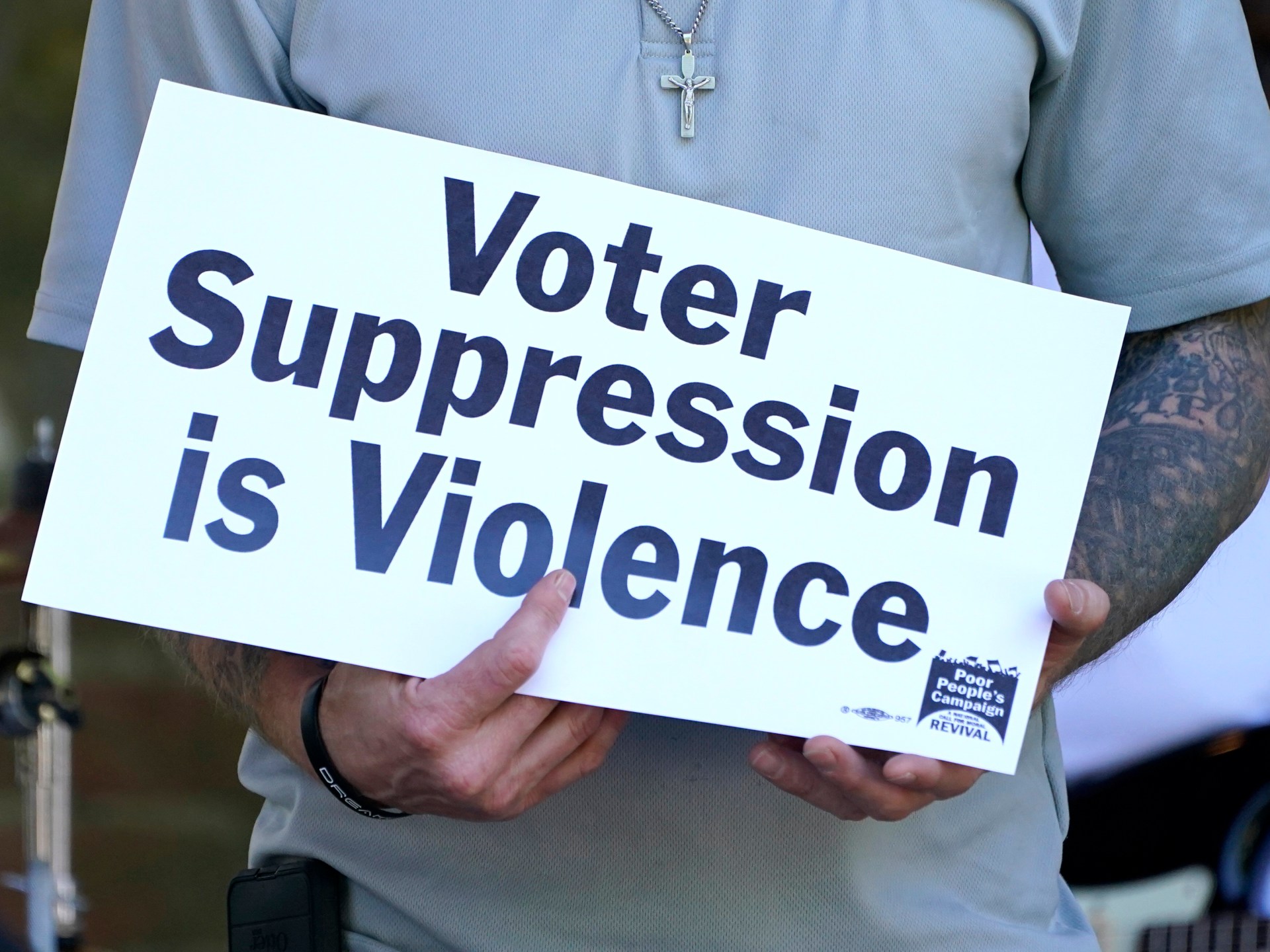
For Mason, the trouble started in 2016. A mother of three, she had recently been released from custody after serving a sentence for felony tax fraud.
It was a big year at the ballot box, with the presidency up for grabs as well as control of Congress, and Mason said her mother encouraged her to vote.
So on November 8, 2016, she arrived at a local polling station in Tarrant County, Texas, to cast her ballot. But Mason discovered her name was not on the voting rolls. No matter: An election worker offered her a provisional ballot to fill out instead.
But by February 2017, she was back in custody, this time facing charges of illegal voting, a second-degree felony with a possible sentence of up to 20 years.
In Texas, people with felony records automatically have their right to vote restored — but only after their sentence has been “fully discharged”. Mason thought her release from prison meant she was in the clear.
But Texas law considers periods of parole, community supervision and probation to be part of the sentence.
Mason had no idea she could not vote. She had been on supervised release when she cast her ballot, but she said she had been sent a voter registration card while staying at a halfway house following her release.
Thus began a legal odyssey that has continued through this year.
Defence lawyers have argued Mason did not knowingly vote illegally, and they called on the testimony of the election worker who gave Mason her provisional ballot.
They also noted that Mason’s vote did not count anyway. Provisional ballots are subject to additional scrutiny and are not tallied unless voter eligibility is confirmed.
The Tarrant County district attorney, however, argued that prosecuting Mason was a question of upholding election security. In 2018, Mason was sentenced to five years in prison.
But as she appealed the lengthy sentence, her plight earned international headlines. She ultimately served 10 months before her release on bond — and just this March, Texas’s Second Court of Appeals overturned her conviction.
Still, District Attorney Phil Sorrells, a Republican, has pledged as recently as May to appeal the court’s decision.
In response to questions from Al Jazeera, his office shared a news release that reads, in part, “This office will protect the ballot box from fraudsters who think our laws don’t apply to them.”
Mason, however, has maintained that the fault lies with the “messy” process surrounding the restoration of voting rights in Texas. She expressed surprise at the district attorney’s decision.
“I was stunned,” Mason told Al Jazeera. “I feel like, instead of attacking one person, let’s fix the system.”
Experts say the patchwork of laws in the US — differing state by state — fosters situations like Mason’s, ensnaring otherwise innocent people.
“Confusion has real consequences, as evidenced by Ms Mason’s case,” Patrick Berry, a lawyer with New York University’s Brennan Center for Justice, told Al Jazeera. “States like Texas, Florida and Tennessee are prosecuting people for mistakes, and it’s often unjust.”
EMEA Tribune is not involved in this news article, it is taken from our partners and or from the News Agencies. Copyright and Credit go to the News Agencies, email news@emeatribune.com Follow our WhatsApp verified Channel





